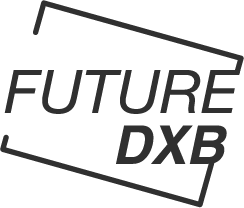ngrok Transforms API Delivery with the Industry’s First Developer-Defined API Gateway
ngrok unveiled early access to its API gateway-as-a-service that marks a major
advancement in how APIs are delivered.
This
next-generation API gateway solution offers enhanced capabilities such as JWT
authentication and authorization to strengthen API security, global rate
limiting to ensure fairness among all clients and a flexible traffic policy
engine that allows fine-grained traffic routing, all powered by a global
network for production API traffic.
Developers
have already been harnessing the power of ngrok’s unified ingress platform to
serve APIs with just one command or one function call. With this new
capability, ngrok transforms API delivery by putting developers in control.
“ngrok’s API
gateway-as-a-service represents a major milestone that effectively bridges the
gap between deployable and cloud-based solutions,” said Alan Shreve, founder
and CEO of ngrok. “ngrok offers the best of both worlds – the robust set of
advanced capabilities and environment independence of deployable gateways,
combined with the simplicity and scalability of cloud-based solutions. In
addition, ngrok’s API gateway-as-a-service frees developers from operational
hurdles, accelerating release velocity and innovation.”
Shifting
the paradigm with a developer-defined API gateway
Modern software development practices put more responsibility in the hands of
developers. They’ve been tasked with building the business logic for their
applications and APIs, along with ensuring API performance, scalability and
resilience. To accomplish this, they rely on ingress, which serves as the front
door for applications and APIs and becomes an integral layer of the application
itself.
However, the
process of delivering APIs is fraught with challenges. Developers rely on
operations teams to deploy and deliver APIs to production, which delays API
launches and results in lost revenue. Also, developers don’t have direct
control over API gateways, leading to broken contracts between the API services
and traffic management policies. This could result in misconfigured API
gateways, which in turn causes API downtime, application performance issues and
unauthorized access.
ngrok
addresses these challenges with its innovative, developer-centric approach to
API delivery, leading to the following outcomes:
- Faster delivery: ngrok integrates ingress directly into applications, allowing developers to establish secure API connectivity with a single command or line of code. This eliminates reliance on operations teams in production deployment while adhering to enterprise controls, governance and security measures to accelerate time to market.
- Reduced risk: By embedding ingress into the application itself, ngrok ensures that API requests contain all the necessary parameters expected by the API. This minimizes downtime, performance issues and unauthorized access that may arise due to poorly configured API gateways.
Eliminating
trade-offs with best-in-class API Gateway capabilities
Today, developers and operations teams face a hard choice in implementing
traditional API gateways. Deployable gateways, while offering environment
independence and a rich feature set, come with high fixed costs and a heavy
operational burden. Alternatively, cloud-based gateways may be simple to use
and provide a pay-as-you-go model, but they lack advanced capabilities and
create vendor lock-in. This dilemma prevents enterprises from realizing the
full potential of APIs and adequately meeting the needs of their customers.
ngrok offers
the best of both worlds by bringing together the strengths of deployable and
cloud-based gateways. Developers and operations teams no longer have to choose
between cloud-based and deployable API gateways to obtain the mission-critical
functionality needed for production API traffic. The benefits of this approach
are:
- As-a-service simplicity: Eliminates operational complexity and brings instant scale with ngrok’s always-on global network, negating the need for deployment, configuration or maintenance of multiple gateways.
- Feature-rich and flexible: Enables configuration of a robust set of features through a powerful traffic policy engine to shape and control the flow of traffic.
- True environment independence: Enables multi-cloud support without environment-specific configurations. Allows users to leverage the same configuration across public cloud, private cloud, localhost and CI environments.
- Pay-as-you-go scalability: Pay only for what you use, scale on demand without friction and transition effortlessly between development and production environments.
